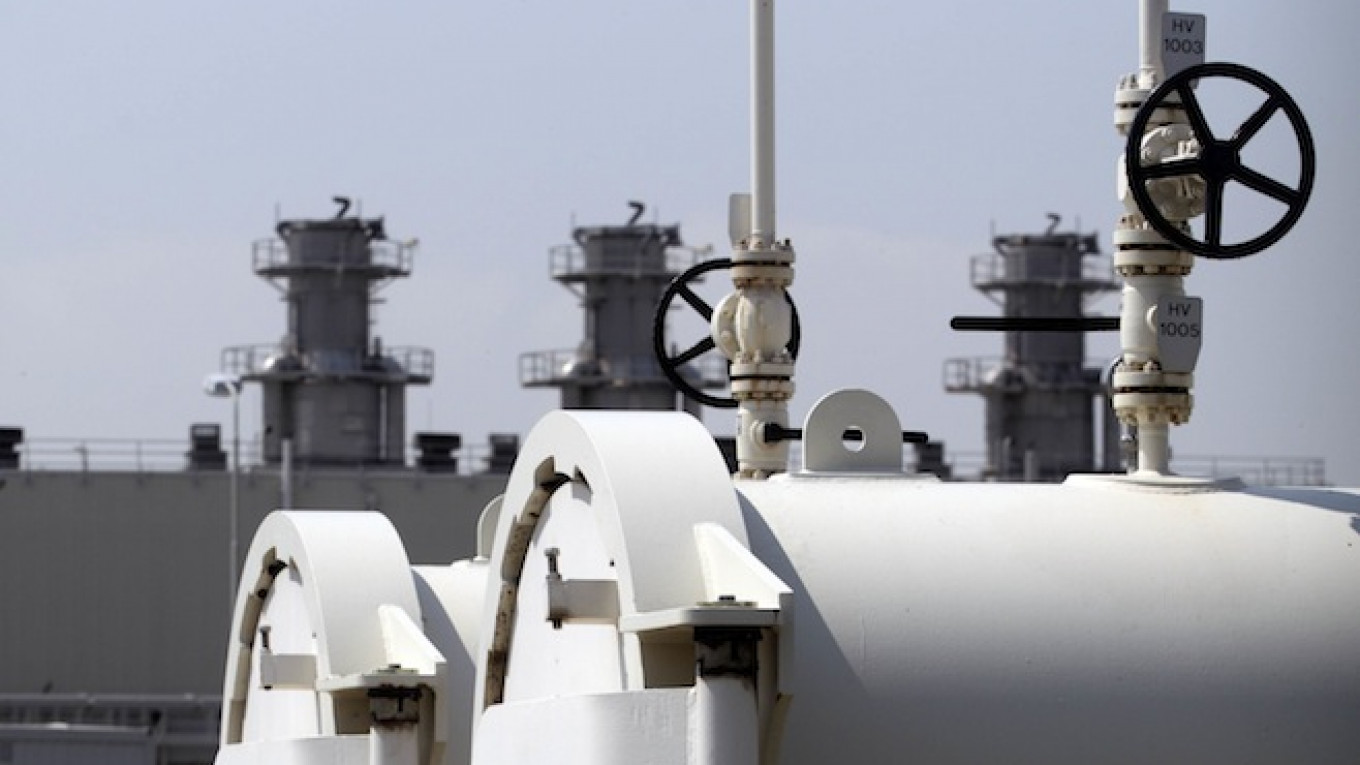BERLIN — The European Union will aim to resolve a row between Russia and Ukraine over gas prices by June 1 with two more rounds of talks planned for next week, Europe's Energy Commissioner said Monday.
GЯnther Oettinger, who met Russia's energy minister and the head of Gazprom in Berlin on Monday to set a date for further talks with Kiev on the dispute, said he would try to negotiate a price that lay between the two sides' demands.
After the meeting, Oettinger said progress had been made in the price dispute.
"We have in the last few days made progress on a number of issues but we still have no agreement," he said, reiterating that the next round of talks between Russia, Ukraine and the EU would take place on May 26.
He said that prices for the period from November to March were cleared up but that they were still working on prices for April, May and June. He added that aid packages from the International Monetary Fund and the EU could be used to pay for past and future gas deliveries.
"We have a timeframe that ends on June 1. We want to do all we can in two rounds of talks next week to clear up the open questions," Oettinger told Germany's ARD television earlier Monday.
President Vladimir Putin has urged EU leaders to do more to help Ukraine through its economic crisis and resolve the standoff over gas and has threatened to cut exports if Kiev fails to pay in advance for June deliveries.
"We will do all we can to make sure Ukraine can pay what it has missed in the last quarter of a year."
The main problem is price. Ukraine insists on a price of $268.50 per 1,000 cubic meters of gas and Russia standing by its demand for $485.
"We want to negotiate a market price for Ukraine so that it is in a better position than it would be with the demands Mr Putin has been making since April 1," said Oettinger.
"Somewhere in the middle would seem to be a fair result of negotiations," he said.
Ukraine, dependent on Russia for more than half of its gas needs, has refused to pay the price Russia is asking, accusing Moscow of using energy supplies top punish the country for trying to break free from its influence.
Gazprom has stood firm, saying it is sticking to a 2009 contract signed by Kiev and has threatened to cut supplies if Kiev fails to redeem its debt.
Moscow has twice before reduced gas supplies over price disputes which have disrupted gas deliveries to Europe, which takes about half of the gas it imports from Russia via pipelines through Ukraine.
A Message from The Moscow Times:
Dear readers,
We are facing unprecedented challenges. Russia's Prosecutor General's Office has designated The Moscow Times as an "undesirable" organization, criminalizing our work and putting our staff at risk of prosecution. This follows our earlier unjust labeling as a "foreign agent."
These actions are direct attempts to silence independent journalism in Russia. The authorities claim our work "discredits the decisions of the Russian leadership." We see things differently: we strive to provide accurate, unbiased reporting on Russia.
We, the journalists of The Moscow Times, refuse to be silenced. But to continue our work, we need your help.
Your support, no matter how small, makes a world of difference. If you can, please support us monthly starting from just $2. It's quick to set up, and every contribution makes a significant impact.
By supporting The Moscow Times, you're defending open, independent journalism in the face of repression. Thank you for standing with us.
Remind me later.






